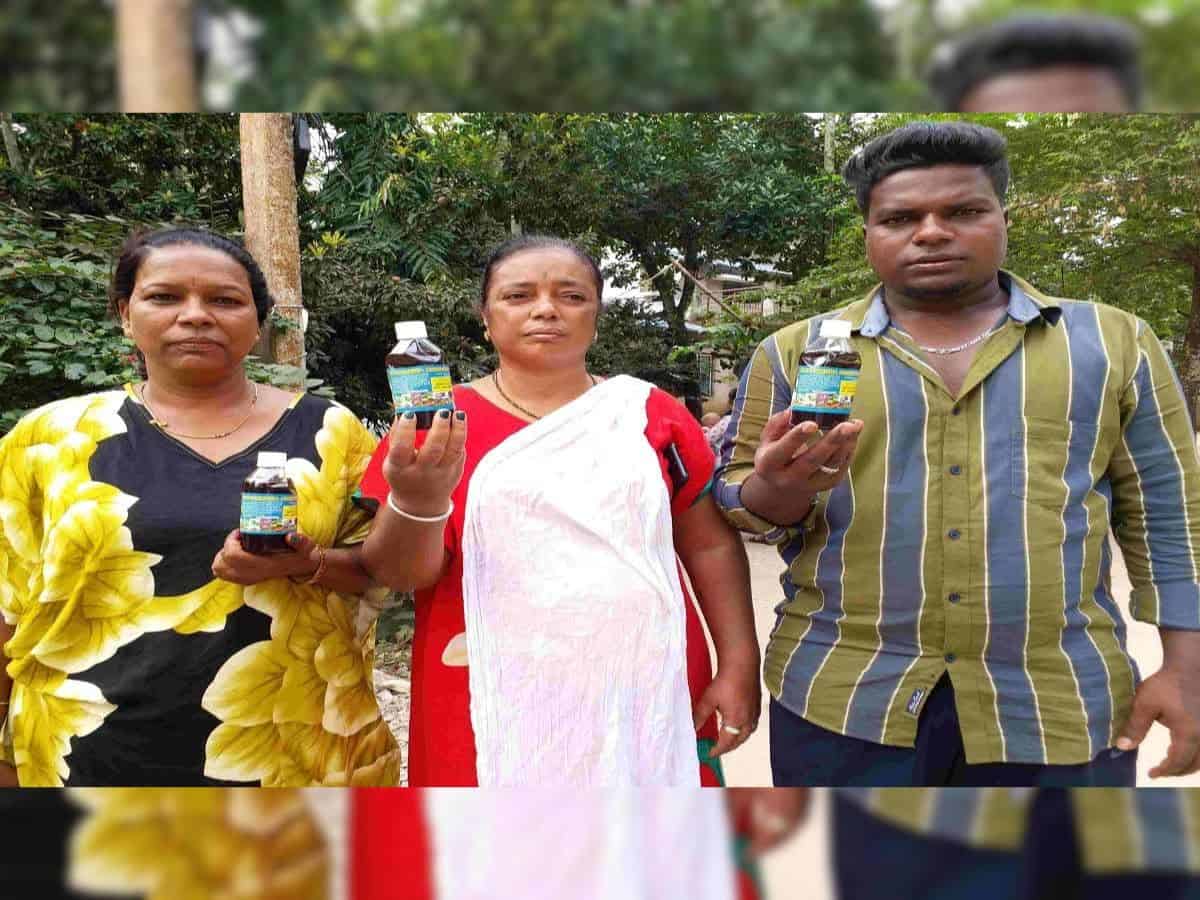
Shimoga: In a unique turn of events, the Hakki Pikki community from Sadashivpur village in Shimoga taluk, who once lived in the forest and engaged in traditional bird hunting, have transitioned to an unexpected livelihood.
Around 2,500 bird pickers from this community have shifted from their traditional profession to establish a small business that has now taken them to foreign countries.
Approximately 40 years ago, the Hakki Pikki community, dispersed in different parts of the district, was granted a forest area near Hasudi Farm in Shimoga taluk to settle in one place. Over the years, what began with a few families has now grown to hundreds.
Originally involved in selling small plastic items to cities and villages, these birders have evolved their business to include herbal products, particularly herbal hair oil. The demand for their products has extended to various countries, including Africa and Malaysia.
Recognizing the global demand for their herbal oil and other products, a significant number of birders from Karnataka have ventured into Africa to conduct business. More than a thousand individuals from Karnataka, predominantly engaged in the production of herbal goods, have travelled to Africa in pursuit of economic opportunities.
Speaking to Siasat.com on Monday, Shivu, the Vice President of Sadashivpur Gram Panchayat, commented on the community’s international endeavours, stating, “Dozens of people from our village have gone abroad. They earn money by selling oil, rudraksha, etc., prepared from herbs they know. They go to Africa to support their families. There is no work to do in our village. They are going to foreign countries.”
An individual who experienced the challenges of doing business abroad is Vishwanath, who was caught in the internal war in Sudan. Expressing his gratitude for being brought back to India by the Central government, he highlighted the importance of education for their children and the need for government support.
Jyoti, who has been to Sudan, discussed the challenges and gains of their overseas ventures, stating, “We have no work in our village. So we prepare herbs from our ancestors and go to all the countries of Africa. The people there do not grow long hair. Because of this, they like our oil more. Sometimes we make a profit. Sometimes we make a loss.”
Aruna shared insights into the difficulties faced while travelling abroad with herbal products, emphasizing the need for proper documentation and permission letters. Despite the challenges, these nomadic birders are navigating international markets with their unique herbal business, contributing to their families’ well-being back home.



